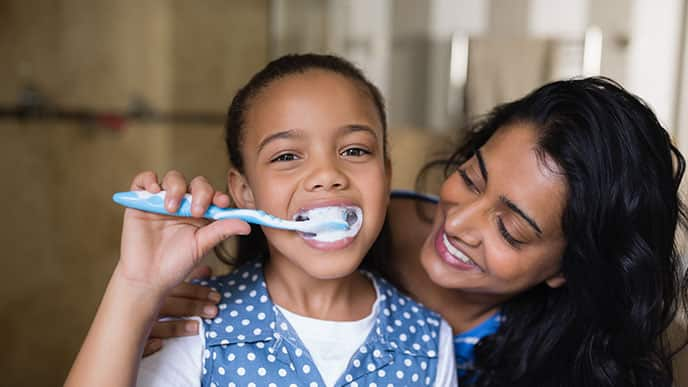Cavities in Children: Increasing
While the incidence of dental decay had dropped for many years, recently there has been an increase in this leading dental disease in children. According to the National Institute of Dental and Craniofacial Research (NIDCR), overall dental caries, or decay, decreased in children ages 2-11 from the early 1970s to the mid-1990s. However, from the mid-1990s to 2004 there was a slight but significant increase in dental decay. This trend was more evident in younger children ages 2-11. Dental health in children is greatly influenced by income, race, and access to care. Educating parents and providing resources to seek dental care will strongly influence a child's dental health.
According to the Journal of Indian Association of Public Health Dentistry - ECC is defined as “the presence of one or more decayed (non-cavitated or cavitated lesions), missing (due to caries) or filled tooth surfaces in any primary tooth in a preschool-age child between birth and 71 months of age". ECC poses a significant public health problem in select populations, but is also found in the general population. Dental caries is an infectious disease and needs to be controlled via prevention.
Help Prevent Childhood Cavities
A child's first visit should occur within six months after the first tooth erupts. Very often this can be accomplished easily with the mother holding the baby in her lap and the dentist or dental hygienist sitting knee to knee with the parent. Then the baby's mouth can be quickly assessed for decay or abnormalities without difficulty. Additionally, parents will receive instructions on good oral habits for their child and themselves to reduce oral bacteria in the mouth. Parents will learn that 'brushing' their infants' teeth can be as easy as wiping them with a washcloth or using a toothbrush especially designed for infants. Perhaps most importantly, parents will learn that limiting the intake of fermentable carbohydrates, especially juice and milk, is crucial. It is the frequency of intake of these sugary liquids that correlates with cavities and should be monitored, especially in bottles or cups at bedtime.
As your child grows, a dental health care provider will introduce and reinforce important treatments and habits for preventing decay, tooth loss, and gingivitis. A visit to the dentist will include an exam and thorough cleaning, instruction in proper brushing and flossing, systemic or topical fluoride treatments, and pit and fissure sealants on permanent molars. Fluoride, though important for cavity prevention, should be limited by age and amount to prevent overexposure. The dentist or dental hygienist can also review proper nutrition for dental and overall health and make recommendations for mouth guards to protect kids' teeth when they begin playing sports.
Parents: The Best Role Models
Parents play an important role in their children's dental health. They need to reinforce good oral hygiene habits such as brushing and flossing at home with their children. However, the most important impact on your children will come from observing your own good habits. Lead by example and demonstrate how important your children's teeth are to their overall health and continuing quality of life. Optimal dental health translates to a healthier child in general and impacts their future habits and livelihood.
This article is intended to promote understanding of and knowledge about general oral health topics. It is not intended to be a substitute for professional advice, diagnosis or treatment. Always seek the advice of your dentist or other qualified healthcare provider with any questions you may have regarding a medical condition or treatment.
ORAL HEALTH QUIZ
What's behind your smile?
Take our Oral Health assessment to get the most from your oral care routine
ORAL HEALTH QUIZ
What's behind your smile?
Take our Oral Health assessment to get the most from your oral care routine








.jpg)




